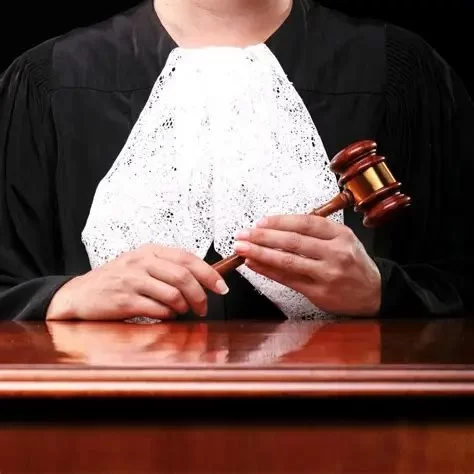- understanding-civil-litigation-what-it-means-and-how-it-works
- key-steps-in-civil-litigation-procedures-explained
- common-types-of-civil-cases-you-should-know
- real-life-civil-litigation-examples-and-lessons-learned
- how-to-prepare-for-civil-litigation-important-tips
- when-to-seek-legal-help-from-a-civil-litigation-attorney
Understanding Civil Litigation: What It Means and How It Works
Civil litigation refers to a legal process where two or more parties become involved in a non-criminal dispute. The aim is to seek monetary compensation or specific performance rather than criminal sanctions. If you've ever had a disagreement with a business partner, landlord, or service provider, and it escalated to court, you've likely encountered civil litigation.
At its core, civil litigation is about resolving conflicts between individuals, corporations, or government entities. Unlike criminal trials, where the state prosecutes someone accused of breaking the law, civil cases are initiated by the aggrieved party. These disputes can arise from contracts, property ownership, personal injuries, or even workplace issues.
One thing to note is that civil litigation can be lengthy and expensive. That’s why it’s crucial to understand your rights, responsibilities, and potential outcomes before heading to court. For personalized legal support in navigating civil litigation, Fred Miller Lawyer offers tailored services to help you reach a fair resolution.
Key Steps in Civil Litigation: Procedures Explained
The civil litigation process typically unfolds in several stages, each requiring careful preparation and strategic decision-making:
1. Pre-filing Investigation
Before filing a lawsuit, your attorney will assess the case's merits. This includes gathering evidence, interviewing witnesses, and reviewing any relevant documents or contracts. If the facts don’t support a claim, alternative dispute resolution methods such as mediation may be recommended.
2. Filing the Complaint
The plaintiff formally begins the lawsuit by filing a complaint. This legal document outlines the issue, the parties involved, and the relief sought. The defendant then has a specific time frame to respond—either by admitting, denying, or contesting the allegations.
3. Discovery Process
Discovery is the evidence-gathering phase. Both sides exchange documents, take depositions, and interrogate each other. This can be the most time-consuming part, but it's critical for building a solid case. Accurate discovery often determines the case’s outcome.
4. Pre-trial Motions and Settlement Talks
Many civil cases settle out of court to avoid the costs and uncertainties of trial. Pre-trial motions might also be filed to dismiss parts of the case or request summary judgment. Your attorney’s strategy during this phase can significantly influence your result.
5. The Trial
If no settlement is reached, the case proceeds to trial. Both sides present evidence and call witnesses. A judge or jury then delivers a verdict. Trials can span days or even weeks, and outcomes are often influenced by how effectively each side tells its story.
6. Appeals
Unhappy with the outcome? Either party can appeal, asking a higher court to review the decision. Appeals require showing that legal errors affected the trial's result—not simply that the losing party disagrees with the verdict.
Common Types of Civil Cases You Should Know
Civil litigation is a broad field, and understanding its common types can help you identify whether your issue qualifies:
Contract Disputes
Breach of contract is one of the most frequent reasons for civil litigation. For example, if a vendor fails to deliver goods as promised, you may have a strong civil case.
Personal Injury
These involve claims of harm caused by someone else’s negligence—such as car accidents, slip-and-fall injuries, or medical malpractice. Compensation typically covers medical bills, lost wages, and pain and suffering.
Property Disputes
Boundary disagreements, landlord-tenant issues, and property damage fall under this category. These can get complex due to overlapping laws and multiple stakeholders.
Employment and Workplace Claims
Discrimination, wrongful termination, or harassment cases often lead to civil lawsuits. With evolving workplace norms, such claims have become increasingly visible and impactful.
Real-Life Civil Litigation Examples and Lessons Learned
Consider the 1994 McDonald’s hot coffee case—Liebeck v. McDonald's. Stella Liebeck, a 79-year-old woman, spilled scalding coffee on herself and suffered third-degree burns. She sued McDonald’s, and while the media mocked the case, it revealed that McDonald’s had received hundreds of similar complaints about coffee temperature.
The jury awarded Liebeck $2.7 million in punitive damages (later reduced), underscoring the power of civil litigation to hold corporations accountable. The case emphasized the importance of public safety and corporate responsibility.
Or take a more recent dispute: in 2022, a freelance designer sued a startup for failure to pay after delivering three months of work. The court sided with the designer, reinforcing the need for clear contracts and documented communication.
If you're unsure how a court might view your case, reach out to Fred Miller Lawyer. We help you understand where you stand legally and whether pursuing a case is worth it.
How to Prepare for Civil Litigation: Important Tips
Being organized can mean the difference between winning and losing. Here's how to prepare effectively:
Document Everything
Keep records of all relevant communications, contracts, receipts, or agreements. Judges and juries rely on evidence, not assumptions.
Understand Your Objectives
Ask yourself what success looks like. Do you want financial compensation, an apology, or a behavior change? Defining this early helps guide strategy.
Work Closely with Your Attorney
Civil litigation isn’t DIY-friendly. Legal procedures, evidentiary rules, and strategic choices can overwhelm the uninitiated. Trusting a seasoned attorney like those at Fred Miller Lawyer ensures your case is approached with professionalism and precision.
Be Emotionally Prepared
Litigation can be stressful and time-consuming. Prepare mentally for ups and downs, delays, and unexpected challenges. Having realistic expectations can ease the journey.
When to Seek Legal Help from a Civil Litigation Attorney
The moment you think a dispute might escalate into a lawsuit, it's time to consult a lawyer. Early legal advice can often prevent full-blown litigation or strengthen your case if it goes to trial.
At Fred Miller Lawyer, we evaluate your case's strengths, explain possible outcomes, and help you decide the most cost-effective course of action. Whether you're suing or being sued, a civil litigation lawyer can protect your rights and optimize your results.
Don’t wait until you’re served with papers—by then, damage may already be done. Contact a legal professional at the first sign of trouble to ensure your interests are protected from the start.


 140 broadway 46th floor new york ny 10005 united states
140 broadway 46th floor new york ny 10005 united states daniel mcgarrigle attorney
daniel mcgarrigle attorney burns brashier and johnson
burns brashier and johnson david dabertin
david dabertin ian chaikin
ian chaikin zarzaur & schwartz p.c
zarzaur & schwartz p.c